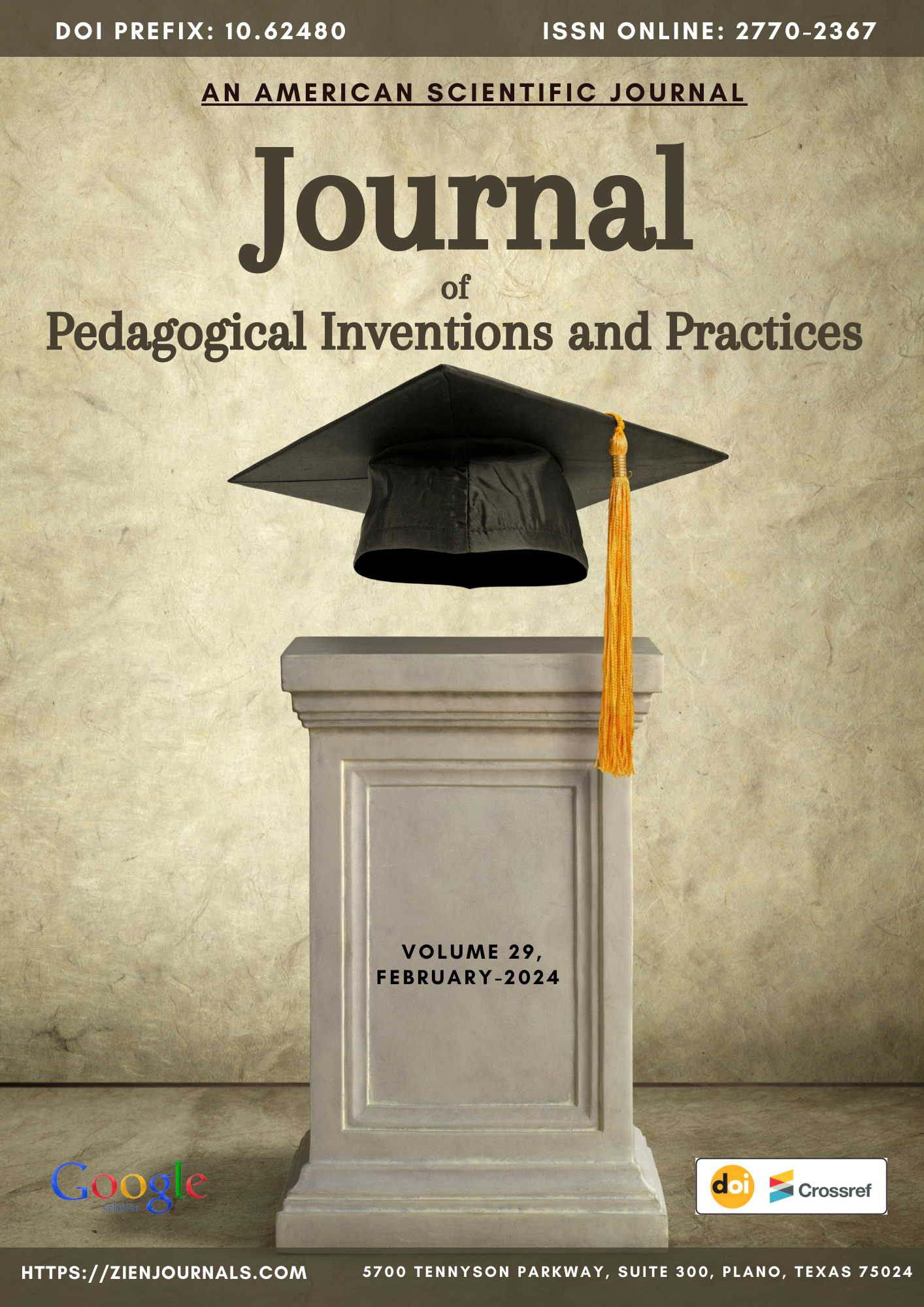Innovative Methods of Teaching Foreign Languages for Economics Students
DOI:
https://doi.org/10.62480/jpip.2024.vol29.pp31-34Keywords:
Foreign Languages, Economics Education, Innovative, Teaching MethodsAbstract
This article explores the intersection of foreign language acquisition and economics education, highlighting innovative teaching methods designed to benefit economics students. It discusses the increasingly vital role of multilingual proficiency in the global economy and addresses the limitations of traditional language teaching methodologies in meeting the specific needs of students pursuing economics. The article outlines several forward-thinking approaches, including Content and Language Integrated Learning (CLIL), Project-Based Learning (PBL), professional language exchange programs, gamification, technology-enhanced learning, and the flipped classroom model. These methods aim not only to enhance foreign language proficiency but also to deepen students' understanding of economic concepts in a global context. By integrating content knowledge with language learning, these approaches offer a more engaging, relevant, and practical educational experience, preparing students for the complexities of the global economy
References
Coyle, D., Hood, P., & Marsh, D. (2010). CLIL: Content and Language Integrated Learning. Cambridge University Press.
Graddol, D. (2006). English Next. British Council.
Stoller, F. L. (2006). Establishing a Theoretical Foundation for Project-Based Learning in Second and Foreign Language Contexts. In G. H. Beckett & P. C. Miller (Eds.), Project-Based Second and Foreign Language Education: Past, Present, and Future. Information Age Publishing. T
Godwin-Jones, R. (2014). Emerging Technologies: Games and Gamification in Language Education. Language Learning & Technology, 18(2), 2-13.
Thorne, S. L., & Reinhardt, J. (2008). “Bridging Activities,” New Media Literacies, and Advanced Foreign Language Proficiency. CALICO Journal, 25(3), 558-572.
Bergmann, J., & Sams, A. (2012). Flip Your Classroom: Reach Every Student in Every Class Every Day. International Society for Technology in Education. T
Warschauer, M., & Grimes, D. (2008). Automated Writing Assessment in the Classroom. Pedagogies: An International Journal, 3(1), 22-36.
Dilshodbek, Z., and S. Bektosh. "THE MAXIMUM REALIZATION METHOD OF COMMUNITY GROUPING IN SOCIAL NETWORKS. CENTRAL ASIAN JOURNAL OF MATHEMATICAL THEORY AND COMPUTER SCIENCES, 4 (5), 56-61." (2023).
Dilshodbek Z. THE APPLICATION OF DIVIDING THE SOCIAL NETWORK INTO COMMUNITIES TO THE ECONOMY //INTERNATIONAL SCIENTIFIC RESEARCH CONFERENCE. – 2023. – Т. 2. – №. 18. – С. 50-53.
Zakhidov, Dilshodbek, and Usarov Jurabek. "DIVISION OF SOCIAL NETWORKS INTO TWO COMMUNITIES USING THE MAXIMUM LIKELIHOOD METHOD." Horizon: Journal of Humanity and Artificial Intelligence 2.5 (2023): 689-694.
Zakhidov, Dilshodbek, and Shukrulloev Bektosh. "DIVISION OF HEPTAGONAL SOCIAL NETWORKS INTO TWO COMMUNITIES BY THE MAXIMUM LIKELIHOOD METHOD." Horizon: Journal of Humanity and Artificial Intelligence 2.5 (2023): 641-645.
Захидов, Дилшодбек. "СОЦИАЛЬНАЯ СЕТЬ И РАЗДЕЛЕНИЕ НА КОМАНДЫ: КАК ПОВЫСИТЬ ЭФФЕКТИВНОСТЬ ОБЩЕНИЯ И СОТРУДНИЧЕСТВА." SUSTAINABILITY OF EDUCATION, SOCIO-ECONOMIC SCIENCE THEORY 1.11 (2023): 63-66.
Zakhidov, Dilshodbek. "UTILIZING MAXIMUM LIKELIHOOD FOR OPTIMAL PARTITIONING IN SOCIAL NETWORKS OF ELEVEN INDIVIDUALS." MODELS AND METHODS FOR INCREASING THE EFFICIENCY OF INNOVATIVE RESEARCH 3.27 (2023): 29-33.
Dilshodbek, Zakhidov, and Shukrulloev Bektosh. "THE MAXIMUM REALIZATION METHOD OF COMMUNITY GROUPING IN SOCIAL NETWORKS." CENTRAL ASIAN JOURNAL OF MATHEMATICAL THEORY AND COMPUTER SCIENCES 4.5 (2023): 56-61.
Zakhidov, D. G., and D. Kh Iskandarov. "Empirical likelihood confidence intervals for censored integrals." Computer Data Analysis and Modeling: Stochastics and Data Science. 2019.
Zakhidov, D. G., and D. Kh Iskandarov. "Empirical likelihood con dence intervals for truncated integrals." Applied Methods of Statistical Analysis. Statistical Computation and Simulation-AMSA'2019. 2019
Downloads
Published
Issue
Section
License

This work is licensed under a Creative Commons Attribution-NonCommercial 4.0 International License.
User Rights
Under the Creative Commons Attribution-NonCommercial 4.0 International (CC-BY-NC), the author (s) and users are free to share (copy, distribute and transmit the contribution).
Rights of Authors
Authors retain the following rights:
1. Copyright and other proprietary rights relating to the article, such as patent rights,
2. the right to use the substance of the article in future works, including lectures and books,
3. the right to reproduce the article for own purposes, provided the copies are not offered for sale,
4. the right to self-archive the article.













